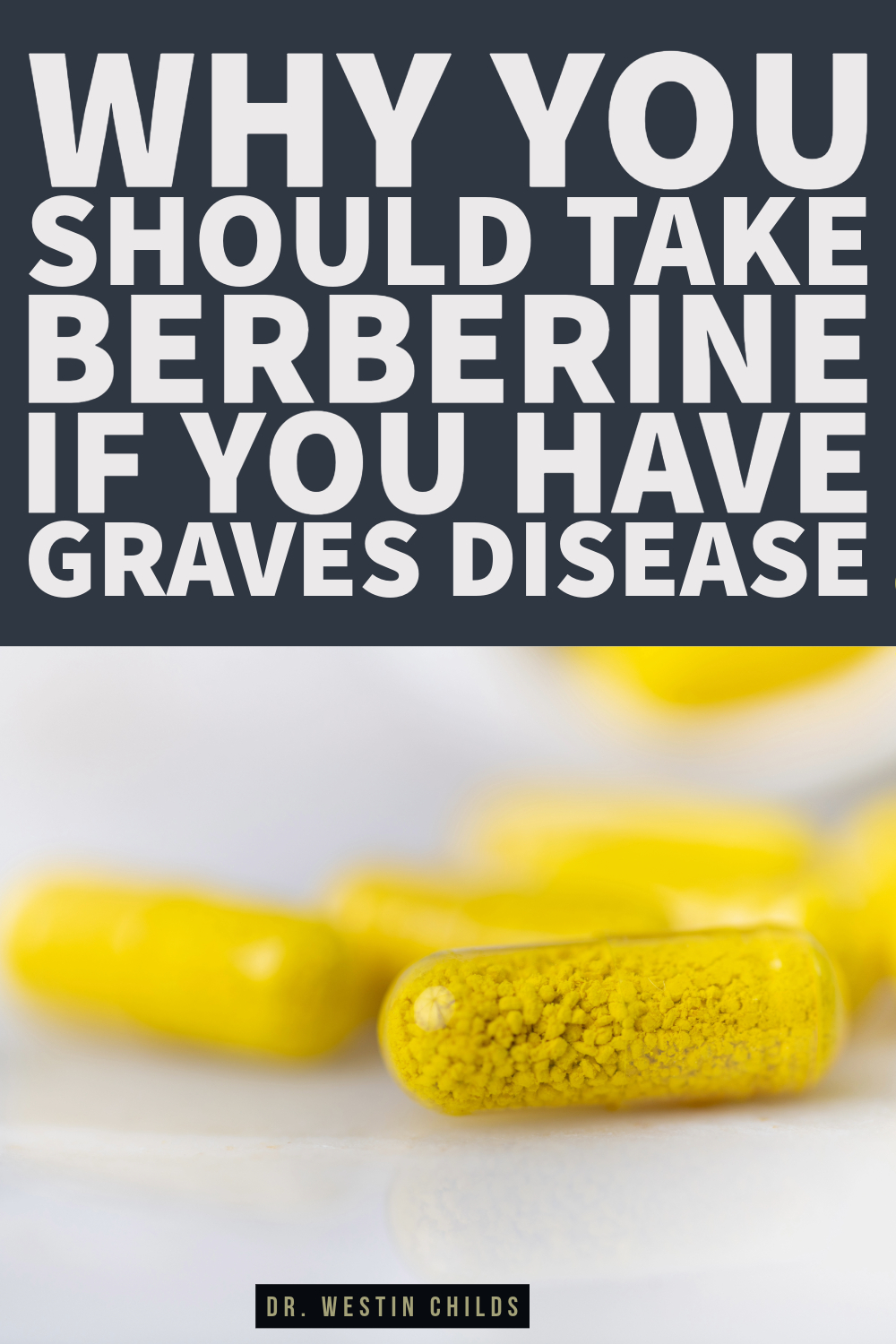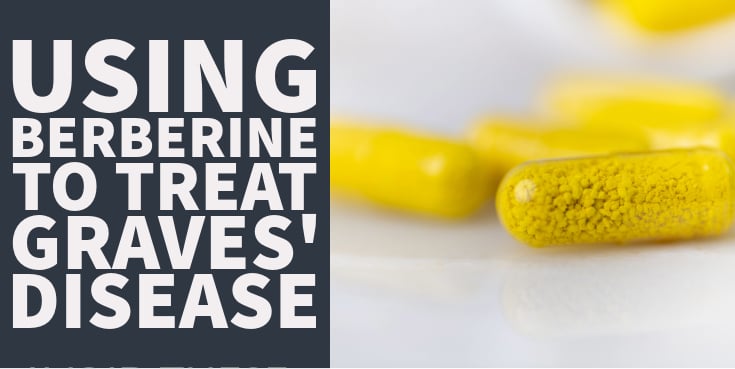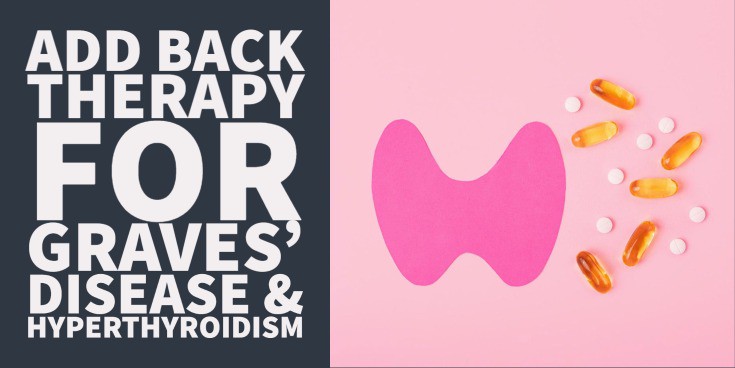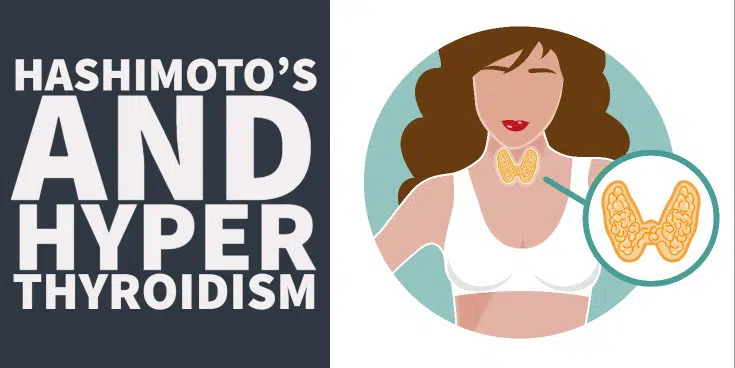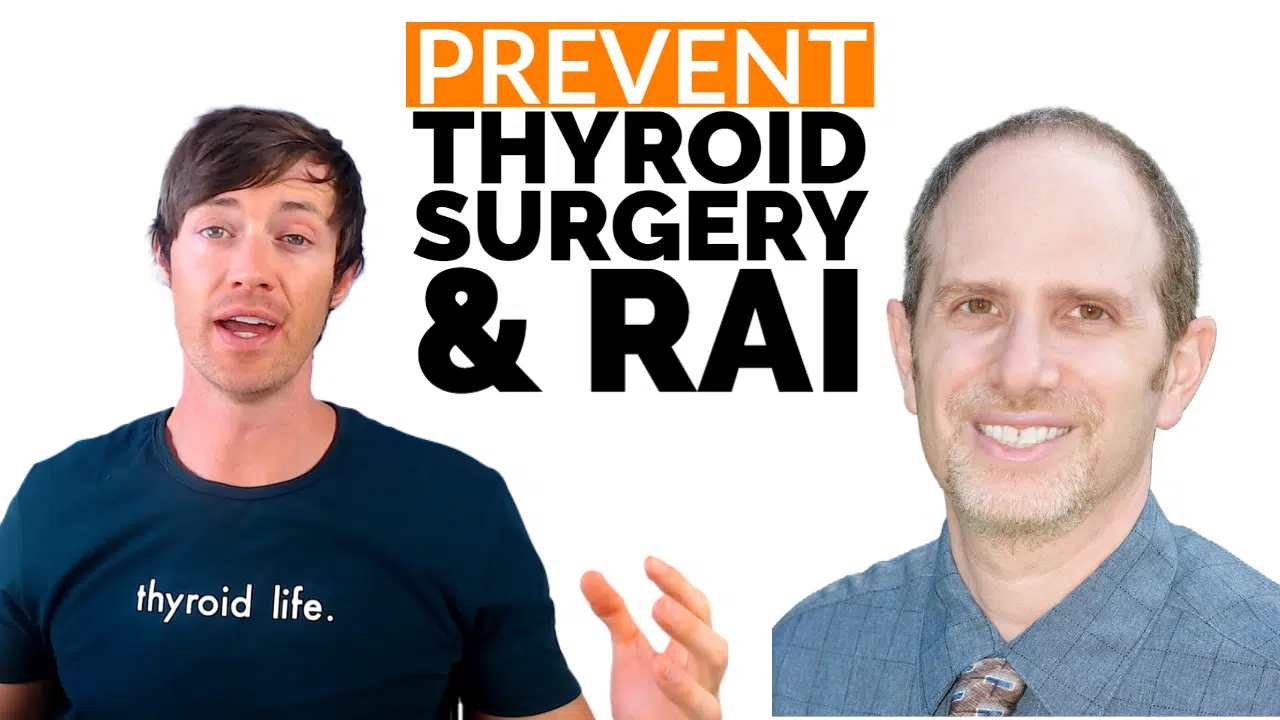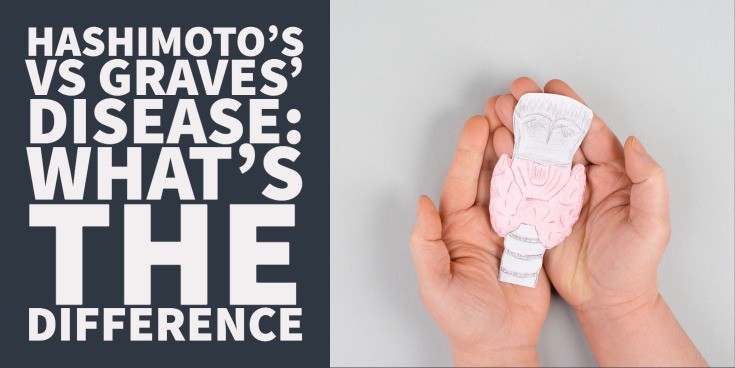Berberine, a plant-based alkaloid with a huge number of benefits, has been one of my favorite ingredients for thyroid patients for a long time.
While it’s been well-studied in the setting of treating symptoms commonly associated with hypothyroidism, such as weight gain, new studies are showing that it can be beneficial for hyperthyroid patients as well.
And since the majority of information out there focuses primarily on hypothyroidism, it’s nice to talk about something that can help hyperthyroid patients!
Let’s talk about how this natural ingredient can help patients with Graves’ disease (hyperthyroidism) improve their thyroid lab tests and reduce their need for methimazole long term:
DOWNLOAD FREE RESOURCES
Foods to Avoid if you Have Thyroid Problems:
I’ve found that these 10 foods cause the most problems for thyroid patients. Learn which foods you should avoid if you have thyroid disease of any type.
The Complete List of Thyroid Lab tests:
The list includes optimal ranges, normal ranges, and the complete list of tests you need to diagnose and manage thyroid disease correctly!
Understanding The Need To Get Off Methimazole
You would assume that given how commonly methimazole is prescribed to treat hyperthyroid patients (1) it must be a good medication but that really isn’t the case.
Quoting from the words of a research paper we will soon discuss “its use is somewhat unsatisfactory in the treatment of GD because of its low cure rate and its high propensity to cause side effects when used long term.”
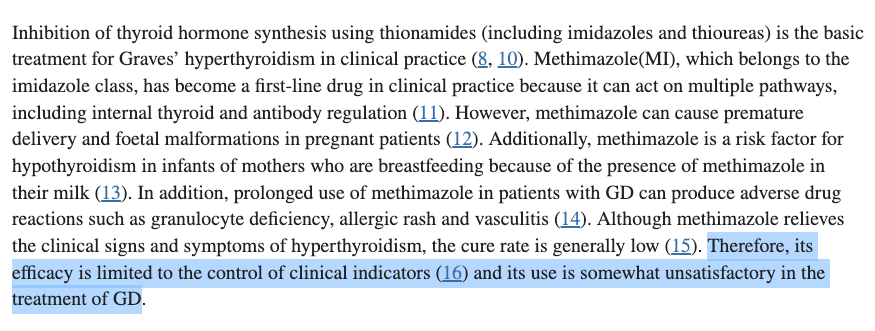
The entire treatment paradigm for Graves’ disease (and other hyperthyroid conditions) focuses on one thing:
Temporarily reduce thyroid function in the hope that the underlying hyperthyroid condition can be reversed so that long-term permanent treatments like surgical removal of the thyroid gland and radioactive iodine ablation are not needed.
While methimazole is VERY good at reducing the hyperthyroid state, it’s not very good at “curing” the underlying hyperthyroid state.
In other words, it just masks the problem.
This is why I’m such a huge advocate of combining natural treatments while you take methimazole.
If you can take something that helps improve your odds of avoiding permanent thyroid procedures, then you have just done yourself a great service.
Because even though doctors will tell you that removing your thyroid gland or ablating it with radioactive iodine is simple, most patients who undergo these procedures wish that they hadn’t.
And that’s where berberine steps in:
The Study Comparing Methimazole to Methimazole + Berberine
In an attempt to see how effective natural treatments can be in Graves’ disease, researchers compared two groups of patients (2).
One group with Graves’ disease took only methimazole for 6 months and another group took the combination of methimazole plus berberine for 6 months.
The researchers followed these patients by looking at their thyroid lab tests and gut microbiota metagenomic sequencing.
Here’s what they found:
While both groups of patients saw a reduction in their free T3 levels, the group taking methimazole plus berberine saw significant improvement in other thyroid lab markers including TSH and thyroid receptor antibodies.
Put simply, patients with Graves’ disease taking berberine plus methimazole were better off than those just taking methimazole.
There are some limitations to the study (including sample size) that are worth mentioning but let’s talk about how berberine is probably working in the body.
How Berberine Benefits Those With Hyperthyroidism
Most people who take berberine are taking it for its beneficial effects on AMPK (3) which is an enzyme that is upregulated during exercise.
The downstream effects of the activation of this enzyme result in easier weight management, better insulin control, and better blood sugar control, all of which are commonly dysregulated among thyroid patients.
While all of this is correct, berberine also has a positive impact on gut health (4) that is often overlooked.
And it’s this benefit on gut health that the researchers attempted to connect to its beneficial effect on Graves’ disease.
It’s well known, for instance, that changes to the microbiome (the relative concentration of bacteria in your gut) have an impact on your personal risk of thyroid disease (5).
This has been shown in many studies over the years and is one of the reasons that conditions like leaky gut have become more prominent.

In the setting of Graves’ disease, research has shown that patients with this condition have higher concentrations of a bacterial species called Prevotella (6) when compared to the healthy population.
And because the researchers of this study mapped out the gut microbiome of each patient, they could see the effects that both berberine and methimazole had on this particular species as well as many others.
They found that both methimazole and berberine reduced the concentration of Prevotella species but they also found that berberine had positive effects on other species in the gut as well.
For instance, the use of berberine was associated with a reduction in harmful bacteria including streptococcus pneomoniae, enterobacter hormaechei, and Chryseobacterium indolgenes.
In addition, it also promoted the flourishing of beneficial bacteria including lactococcus lactis and enterococcus hirae.
These downstream changes in gut microbes were only seen in patients taking berberine which indicates that at least part of its benefits are related to its effects on gut health.
Takeaways & Expectations
If you have hyperthyroidism or Graves’ disease it’s easy to see this information and get excited.
Before you do, here are a few things to consider:
#1. While encouraging, this study had a limited sample size.
The study mentioned here tested a grand total of 18 people (8 people in one group and 10 in the other) which is a pretty small sample size.
Ideally, we’d like to see numbers much higher than this, at least in the range of 40 to 50 in each group.
Higher sample sizes more closely approximate the general population (7) and provide results that can be extrapolated to more people.
It’s not that the results here are useless, but it’s hard to determine their scope.
#2. If the primary benefits of berberine come from gut health then other treatments may make it even more effective.
The researchers seem to have attributed the majority of the benefits of berberine to its beneficial effects on gut health.
It’s difficult to pin the majority of the benefit of berberine on one single mechanism given that it impacts so many systems in the body, but it makes sense that targeting the gut is critical for patients with autoimmune disease.
If that’s the case, and it likely is, then it follows that additional gut-supporting treatments may provide patients with Graves’ disease even more benefit than just using berberine alone.
Combining berberine with probiotics and prebiotics will likely enhance its gut-supporting effects even more.
If you are looking for a thyroid-specific probiotic make sure it contains multiple species like this one.
#3. The benefits of berberine take time to materialize.
The length of this study was 6 months long which means there was ample time for berberine to have an impact on the gut microbiome.
Many thyroid patients taking thyroid support supplements often look at results on the order of weeks, but the reality is that they are better served by looking at their results on the order of months.
As a patient with Graves’ disease, remember that natural treatments often take much longer to take effect compared to natural treatments like berberine.
Should You Take Berberine?
I’m going to argue yes.
And the reason is simple:
When you look at the standard outcome for most patients with hyperthyroidism who take only methimazole, the future is relatively bleak.
You know that there’s a very small chance your disease will ever be put into remission which means your long-term options include thyroid removal or RAI, both of which are not ideal.
On top of this, while methimazole is great for reducing thyroid function, it was never intended to be used long-term.
Its long-term side effects include a laundry list of things like…
- Granulocyte deficiency
- Allergic rash
- Vasculitis
- Liver damage
- Problems with fetal development if used while pregnant
- Hypothyroidism in babies if used while breastfeeding
- And much more
Given its hefty side effect profile and low cure rate, it seems that anything you can do to limit your exposure to this medication is ideal.
So even though the study I mentioned above isn’t enough to prove that berberine is a miracle supplement for those with Graves’ disease, it has potential and is preferred over just using methimazole alone.
As a patient in this situation, I would argue that being aggressive with natural therapies while taking methimazole is the best approach because it increases your odds of remission.
Berberine just happens to be one of your better options given that it has some data to back its use.
If you decide to use berberine then dihydroberberine at 200 mg taken twice per day is the ideal dose.
You can see my recommended berberine supplement here.
But I would also consider combining berberine with other gut-supporting nutrients like probiotics and prebiotics.
And while you’re at it, don’t forget to optimize your vitamin D status as well.
These combined with a healthy whole-food diet and regular exercise will do a lot for your thyroid and your overall health.
Scientific References
#1. ncbi.nlm.nih.gov/books/NBK548406/
#2. ncbi.nlm.nih.gov/pmc/articles/PMC8785824/
#3. pubmed.ncbi.nlm.nih.gov/27887947/
#4. ncbi.nlm.nih.gov/pmc/articles/PMC9463479/
#5. ncbi.nlm.nih.gov/pmc/articles/PMC8889015/
#6. ncbi.nlm.nih.gov/pmc/articles/PMC5506432/
#7. web.pdx.edu/~newsomj/pa551/lecture4.htm
